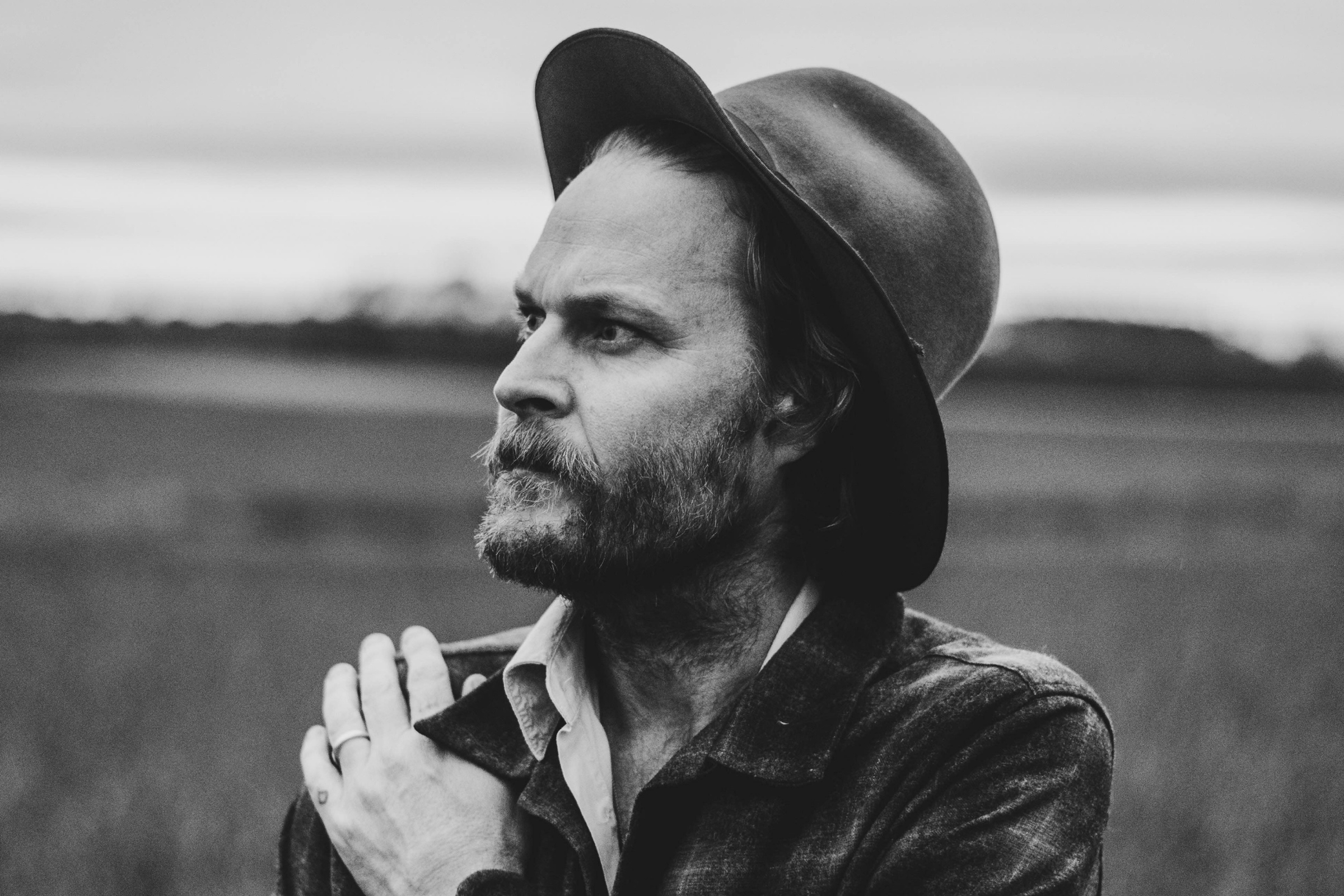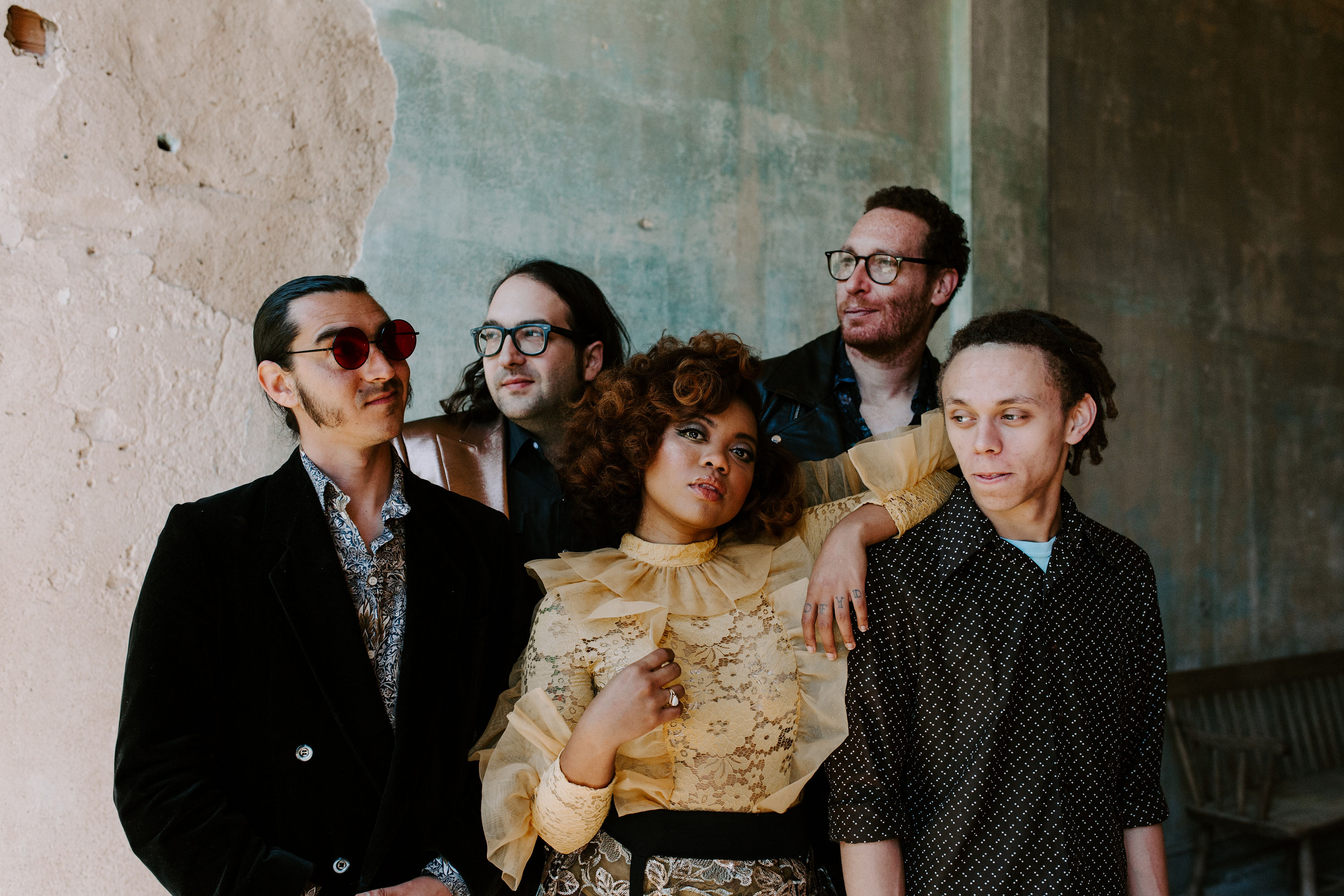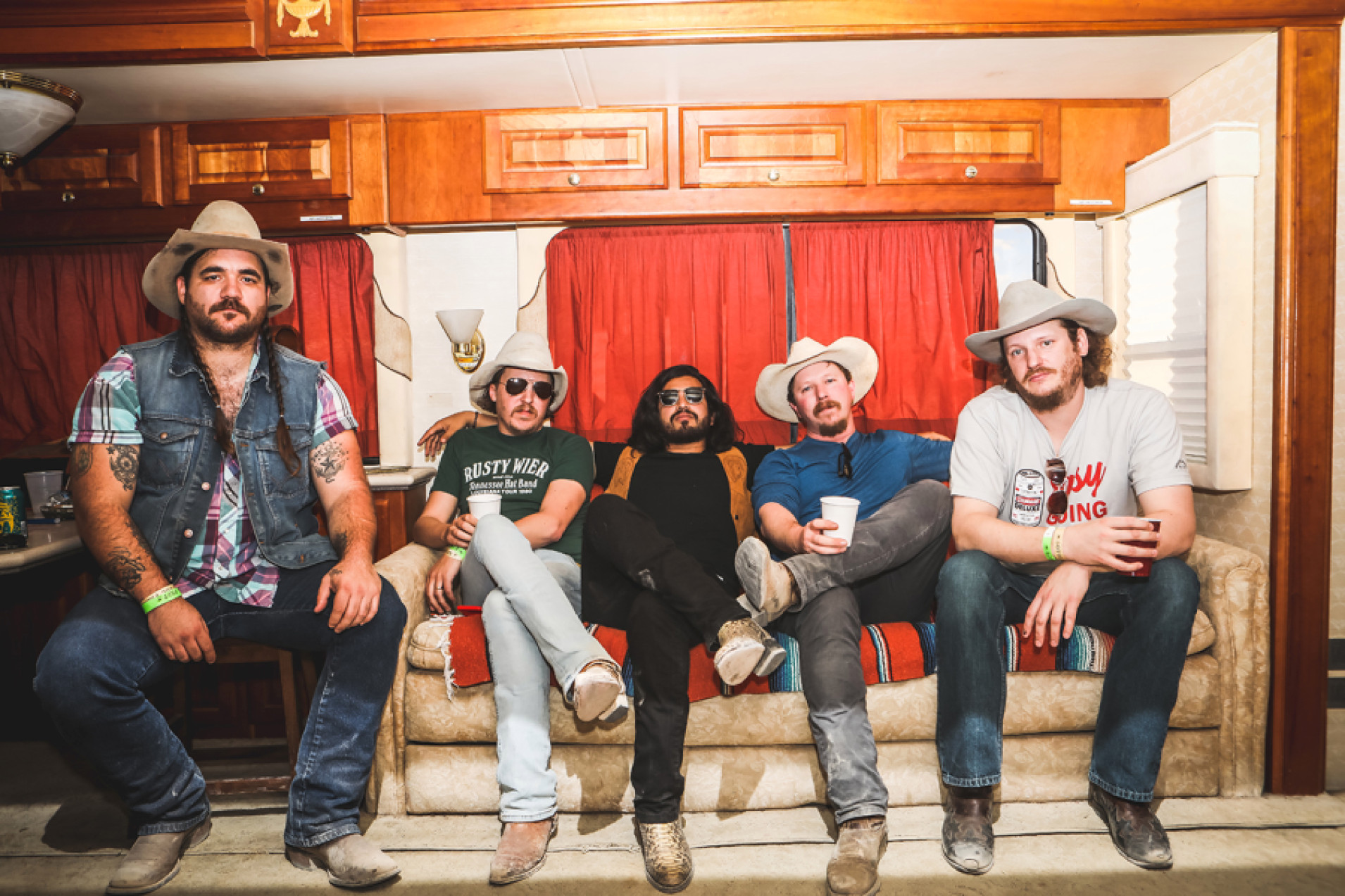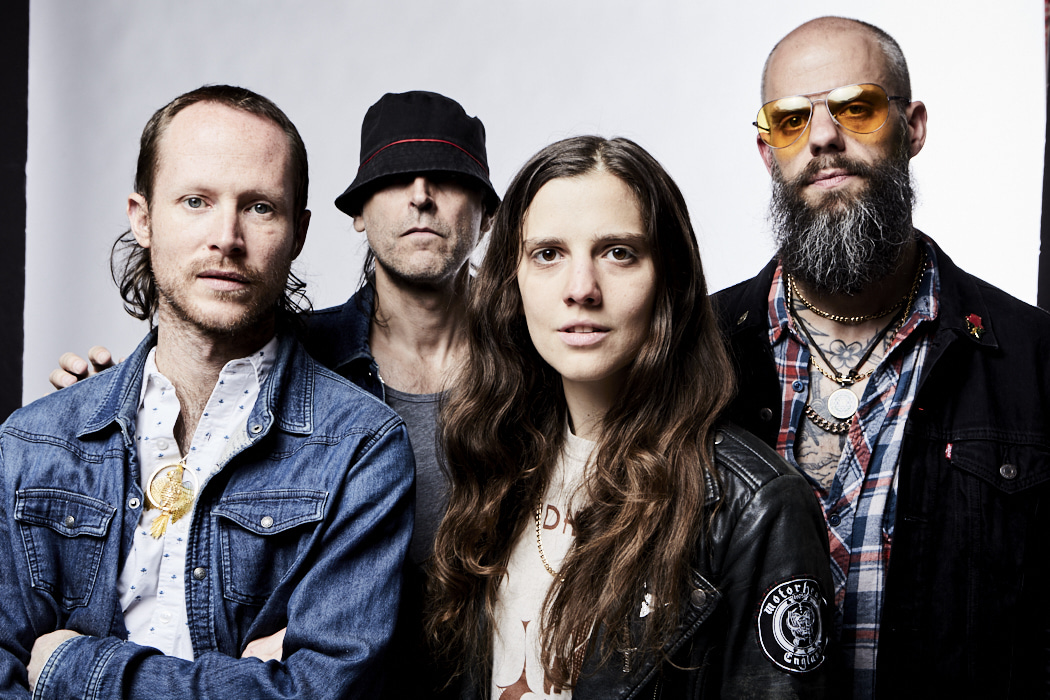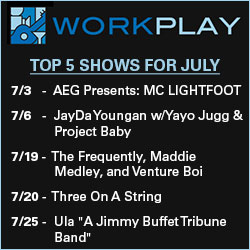Same as it Ever Was: A Conversation with David Byrne

Photo: Jody Rogac
Former Talking Heads lead singer David Byrne hasn’t been to the Magic City since 2001. That was an appearance at the now defunct City Stages music festival, and Byrne thinks that visit may have been his only one ever. He returns on October 3 on the heels of his latest solo effort, American Utopia.
Byrne stays busy. In addition to seven solo studio albums since the Talking Heads disbanded in 1991, he’s had four collaborative records (including the most recent, 2012’s Love This Giant with St. Vincent), he’s written nine books, he’s won an Academy Award, a Golden Globe and a Grammy and he’s an avid cyclist and voracious reader. His band, Talking Heads, was inducted into the Rock and Roll Hall of Fame in 2002.
Ahead of his visit, he spoke about where he might take his bicycle in Birmingham, his latest record, what may be his largest stage production to date and about the positives to be found in a world that needs some.
Have you already mapped out where you’ll take the bike or will you play it by ear when you arrive?
I try to do it maybe a day ahead of time, wherever I happen to be; I think it may be Atlanta. I’ll go online and look around and research, “Let’s see what’s going on, what I should see.” We’ll see what’s new in Birmingham. Sometimes I just wander and get a sense of where I am. Which, I have to say, can make a huge difference when you’re touring; to know where you are. [Laughs] It really does help keep you sane on the road. [Laughs]
When you get away from the crew and do that, how long do you typically go out?
Couple of hours, something like that. I’m not doing marathon bike rides or anything like that. I’m just wandering around.
American Utopia is the first fully solo record that wasn’t a collaborative effort in a decade or so. Do you have a short list of names that you want to make collaborative records with? Who are some of those people?
No, I don’t. Brian Eno is often my go-to guy that I’ve worked with over many decades. So if he has something – in this case he had some drum tracks – if he has something, I’ll trust that that will be worth my time. Let’s see if that can be the start of something.
Beyond that, often, it ends up being a lot of people that I’ve never worked with before; especially on this record. There are some people that I’ve worked with before that I know well, but there are a lot of faces that are completely new to me; if somebody recommends them, I may not have been familiar with their work. That’s a nice thing, though, the way you make records these days. You can do that.
How much work went into the choreography on this tour and who choreographed the performance?
It’s a lot of work. There’s a woman named Annie-B Parson, and I’ve worked with her and known her for many years. She’s a performance art person, and I’ve worked with her a little bit in the past, but this time, I said, “You know, I’m going to dive into the deep end and give you the whole stage and give you all the musicians to work with; not just the singers and dancers.”
I did a lot of the technical research ahead of time to make sure that what we were going to do was going to work, because we were trying something really new. Then I think we spent about five weeks on learning the music, the choreography, how to carry the instruments around – all the various things that we do in the show. It was among the most intense five weeks that I’ve ever spent. [Laughs] I’m not a trained dancer, so having to remember movement and where I’m supposed to be and what I’m supposed to be doing, while I’m remembering the lyrics or whatever else – and the same for all the other musicians – that was intense. Now we’ve got it all down. But that was tough.
It’s a big production. Were the other musicians pretty open to learning the dance moves and such to make the whole thing work?
[Laughs] There was a little bit of push back from some of them. They knew what was coming, but there was a little bit of a push back. Maybe sometimes there was a sense of, “Hey, I’m a musician. I didn’t sign up to do all of this dancing. I’m a really good musician.” And it was, “Yeah. Okay, yeah. Well, this is what your job is. [Laughs] This show – we’re going to do something a little different.”
But once they saw how it all worked, and really, once they saw how an audience responds to what they’re seeing, they were in 100%. Then it was, “Oh yeah. Let me do some more!”
You’ve mentored young bands like Dirty Projectors and there are still other bands like Parquet Courts that have a sound distinctively influenced by Talking Heads. Did you think that band would still be influencing current music 25-30 years after breaking up?
Oh, no. I was kind of surprised. [Laughs] During the grunge era, I thought, “Well, okay. That’s it for what we were doing.” [Laughs] That’s not to be critical of any other bands, I just thought, “Alright, it’s time to move somewhere else.”
But it’s funny, thanks to the internet, people discover stuff – or they rediscover things. It’s pretty cool. It’s been pretty cool.
What are some other young bands that are inspiring you today?
Some of them are acts that I’ve invited to be our support acts. Topaz Jones, Benjamin Clementine, a group by the name of tUnE-yArDs – I saw her years ago; she was opening for Dirty Projectors – there’s a guy named Perfume Genius. There’s a lot.
American Utopia was one component of a bigger, multimedia project. Another component was called “Reasons to Be Cheerful.” What are some reasons to be cheerful?
There’s actually quite a lot. A lot of them are small or local in the cities – that groups have started, cities have started, small countries have started. One thing that encouraged me recently was, we were in Portugal doing shows and Portugal, like Italy and Spain and Greece and lots of other countries, lots of other regions and here in the U.S., they were told, “Well, we’ve got a financial crisis, you’ve got to cut all your services. You’ve got to cut education. You’ve got to cut health. You’ve got to cut infrastructure. All of this stuff has to be cut for austerity. You have to do this to get through this.”
Portugal decides, “No, we’re not going to do that. We’re going to keep providing services for people just as we’ve always done. And we’re going to get our way out of debt.” And they – and I think maybe Uruguay – have managed to turn around, get themselves out of debt the way a lot of places have found themselves during the financial crisis, without cutting back on schools and hospitals – all of the things that people need to live. And they did it! And they’re doing great. To me, that proves that the idea that you have to cut all of this stuff because of austerity measures is not a rule. It’s just made up. It’s not a law, it’s just something somebody made up. And I thought, “That’s really good news!” You don’t have to do it. Let’s look at what they did and see if it can work in other countries or other states or other regions or whatever it might be. That’s one that came to me the other day.
Has the shape of this country over the past few years ever made you consider returning to the U.K.?
Oh, no, the U.K. is the same. [Laughs]
U.K. is pretty much the same. I think what’s happening in the U.S. is maybe more extreme. But the same phenomena is happening everywhere, with a few exceptions. China is one of those exceptions. But in a lot of the developed world, the same thing is happening. What’s happening here is not unique to here; it’s something that’s happening everywhere. The good news about that is we can look anywhere – we can look all over – and see that somebody else has found solutions. We don’t have to reinvent the wheel and find them all ourselves.
Is songwriting or book and journal writing more satisfying for you?
Songwriting for me is satisfying when I get it. When I get something that I can look at it and think, “Wow. That’s quite a surprise. I didn’t know where it was coming from and I didn’t know where it was going, but I understand it now.” That’s a really good feeling. With songwriting, you get to validate that in front of an audience sometimes. You get to give it the acid test and see if it really works, which is nice. You don’t get to do that as much with a book. But with a book, you can’t include other things that you can put in a song; the things that we think about and talk about that don’t work in a song.
What’s the best book you’ve read recently?
I’ve got a few books going at the same time. I’m reading one called Exact Thinking in Demented Times [by Karl Sigmund], which is about this circle of philosophers and physicists and people like that from maybe 100 years ago or so, and the times were truly demented – kind of what we have now. And yet, there was this group of physicists and philosophers that thought, “Let’s be very precise in our thinking.” Which was kind of counter to everything else that was going on.
I’m also reading a book called Can Democracy Survive Global Capitalism? [by Robert Kuttner] which sounds a bit dry, but it’s actually really good.
What song did someone else write that you most wish you had?
Oh my God. Where to begin? There’s so many! There are lots of songs I hear and I think to myself, “That’s so cool. I wish I could do that.” But I also realize that it’s something that’s just not in my wheelhouse; it’s not something that I could really perform.
Oh, I don’t know. [Laughs] There’s so many.
David Byrne comes to the BJCC Concert Hall on Wednesday, October 3. tUnE-yArDs opens. The show begins at 7:30 p.m. and tickets are available through Ticketmaster beginning at $43.


